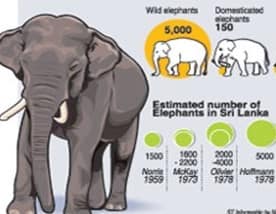
This is entirely a research based compulsory course unit, in which you will learn all the aspects associated with research work. During this course you will investigate a practical problem related to wildlife in a specific area within a given time frame using hands on experience and disseminate findings with recommendations. The course constitutes proposing investigation/s to address issues in an identified wildlife problem, designing an investigation/s to address issues and writing project proposal, implementing of project activities, analyzing collected data and interpretation of findings finally a submission of a written report and make a presentation on the findings and recommendations on future work .
- Teacher: Dr Saminda Fernando
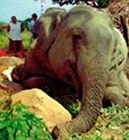
The aim of this course is to plan, organize and propose preventive practical solutions to overcome human animal conflicts and issues through hands on experience. During this course you will analyze existing examples of plant/animal and human conflicts in terms of value, ecology, economy and social importance. Moreover, you will study short term and long term solutions for the conflicting situations, implementation strategies and their merits and demerits, current and probable human and wildlife conflict situations and these current human wildlife conflicts will be critically assessed through ecological, economic and social factors. During this course you will actively involve with relevant stakeholders facing these conflicts and you will provide a plan and propose a conflict resolution strategy.
Basically the course is field oriented and the field will be conducted in an area where conflicts between wildlife and human are visible.
- Teacher: Dr Saminda Fernando
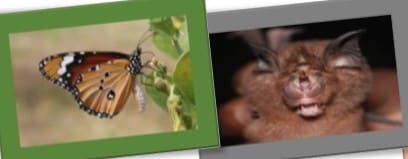
This course deals with the basic principles of biology, diversity of life, adaptations to the environment and physiology of life functions in plants, animals and other living forms considered as wildlife. Initially, this course is directed on the origin and evolution of life on planet earth, the cellular basis of life and levels of organization in life forms. Moreover, the course will focus on morphology, body organization and diversity of plants and animals. Furthermore, theoretical aspects associated with taxonomy, systematic, classification and nomenclature of animals and plants will be discussed in detail. Advanced physiological processes of essential life functions will also be subjected to study. At the end you will study the immense diversity of floral and faunal groups of Sri Lanka.
- Teacher: Dr Saminda Fernando
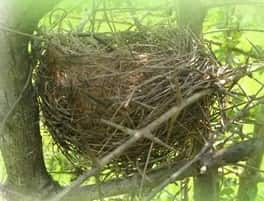
This course focuses on the basic principles of ecology which can be effectively used in conserving and managing plant and animal populations in their natural habitats. The course will be started focusing on concepts in ecology and definitions. The first part of the course deals with the relationship between the environment and the organism, where you will earn on environmental factors affecting on organisms, tolerance levels and optimum conditions of these factors, habitat and niche of organisms, concepts of ecosystems in nature, food and feeding relationships, energy flow in ecological systems, nutrient recycling and finally factors affecting ecosystem stability will be discussed. The second part of the course highlights the concept of population and its characteristics such as population growth, regulating population interactions, population fluctuations, and factors affecting productivity and biomass of populations. The third part deals with the concepts of a community, its characteristics, community organization and dynamics and stability of community.
Above mentioned theoretical facts will be practically focused in a field class to a natural ecosystem, most probably a national park with pristine ecosystems.
- Teacher: Dr Saminda Fernando
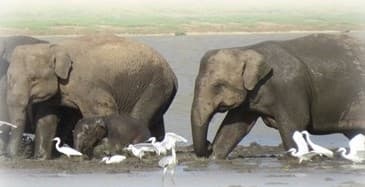
This course deals with applications of principles and practices of protecting and managing wild populations in their habitats. As the initial part the course focuses on characterization, magnitude and distribution of biodiversity. Secondly, issues associated with biodiversity will be discussed focusing on loss of biodiversity, vulnerability of species extinction, problem of small populations, IUCN categorization of threatened taxa and population biology of endangered species. Thirdly, maintaining conservation based viewpoint, information on managing protected areas, establishing new populations, establishing protected areas (In-situ conservation), ex-situ conservation strategies will be discussed deeply. Furthermore, international approaches for conservation and sustainable utilization of bio diversity and legislation framework for wildlife conservation in Sri Lanka will be addressed accordingly.
A field class will be conducted in a national park under this course and you will study about already implemented conservation and management plans in the park and you will propose new plants to implement in the future.
- Teacher: Dr Saminda Fernando
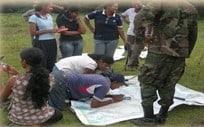
This course deals with the use of conventional and modern tools and techniques to inventories and monitor wildlife populations and use of survival strategies when dealing with wildlife to maintain the quality of habitats. Initially study techniques associated with inventorying and monitoring biodiversity such as census and estimates, live trapping, visual encounter surveys..etc.. will be taught. Secondly, the use of wild plant and animal cues, field crafts in wildlife management will be discussed. Thirdly laboratory work such as museum techniques, preservation of organisms will be focused. As the last part of the course, modern techniques in population studies such as radio telemetry, camera traps, vocalization etc.. will be discussed.
The course consists field classes to national parks in Sri Lanka such as Wilpaththu, Bundala, Girithale, Maduru Oya...etc. The aim of the field class is acquiring hands on practice of the studied wildlife techniques.
- Teacher: Dr Saminda Fernando